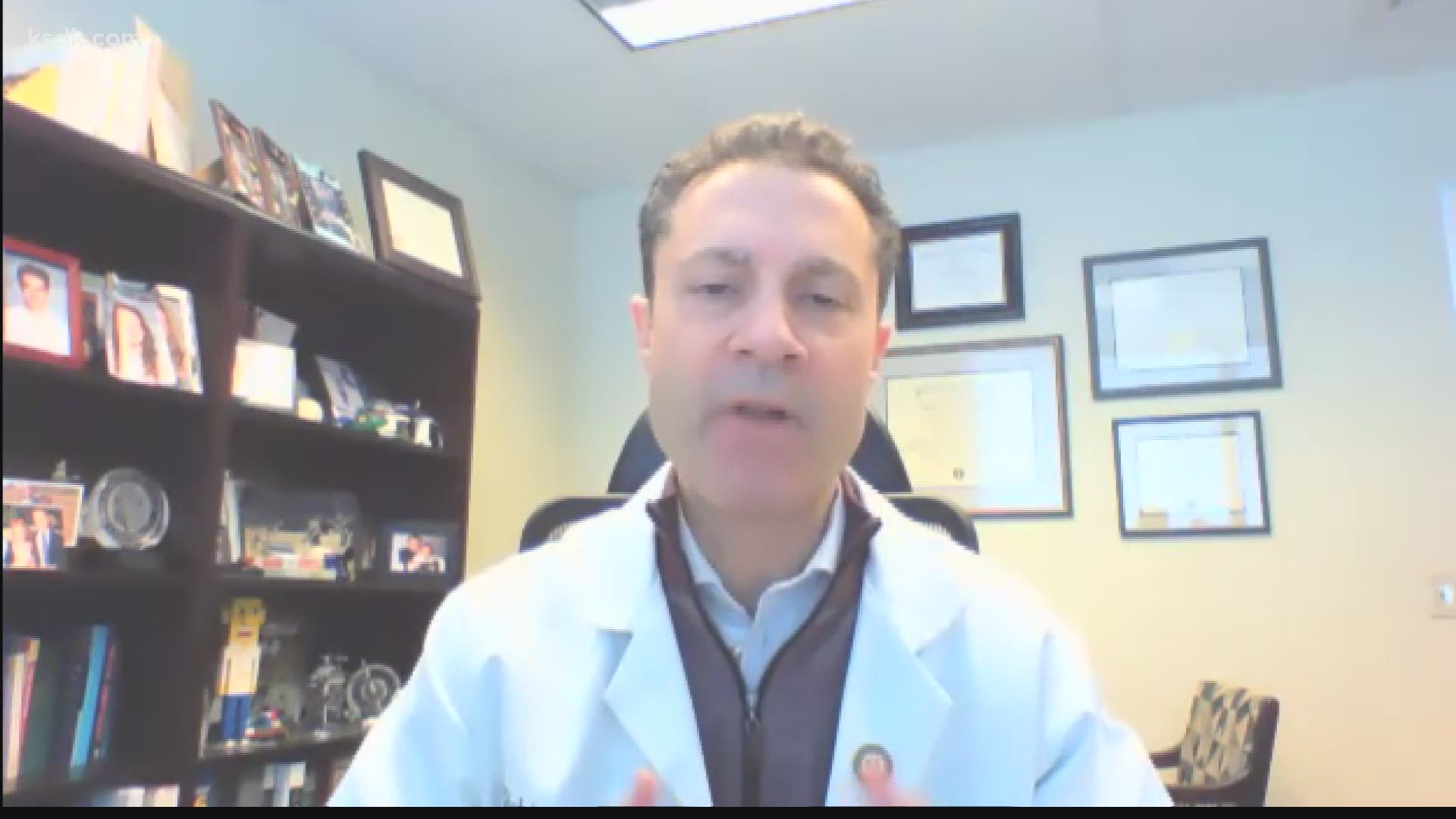ST. LOUIS — Thrown out of our routines, kept away from the people, places and activities we love: the past year's been hard on the heart for many people. Doctors worry about the pandemic’s impact on heart health, too.
“The numbers of people that we're seeing who have not sought health care, have delayed being evaluated for the heart attack, being evaluated for their stroke really is striking,” said Dr. Andrew Kates, a Barnes-Jewish Hospital cardiologist.
A recent Cleveland Clinic report finds more than half of Americans and 65% of heart disease patients are putting off doctor's appointments because of the pandemic.
“People who aren't getting these conditions diagnosed or treated, they're going to start developing complications related to their heart disease or their cardiovascular disease. So we're going to see the impact of this really further down the road as well,” said Dr. Kates.
He said it’s particularly dangerous when people don’t seek help for symptoms of acute or emergency cardiovascular episodes like a heart attack or stroke.
“Patients are presenting later. So they're showing up later in the onset of their symptoms if they're having a heart attack, and they're having greater complications because of that,” said Dr. Kates. “It’s so important to understand that if you're having symptoms concerning for heart attack, concerning for a stroke, that you should seek health care, really seek medical attention really right away.”
The CDC lists the following as major signs of a heart attack:
- Chest pain or discomfort. Most heart attacks involve discomfort in the center or left side of the chest that lasts for more than a few minutes or that goes away and comes back. The discomfort can feel like uncomfortable pressure, squeezing, fullness or pain.
- Feeling weak, light-headed or faint. You may also break out into a cold sweat.
- Pain or discomfort in the jaw, neck or back.
- Pain or discomfort in one or both arms or shoulders.
- Shortness of breath. This often comes along with chest discomfort, but shortness of breath also can happen before chest discomfort.
- Other symptoms of a heart attack could include unusual or unexplained tiredness and nausea or vomiting. Women are more likely to have these other symptoms. Learn more about women and heart disease.
Doctors continue to learn more about any potential long-term impacts of COVID-19 on the heart for people with and without pre-existing cardiovascular conditions. They have seen people with both serious and moderate cases of COVID-19 display extended cardiovascular symptoms like chest pain, shortness of breath, high or low blood pressure and irregular heart rate. Dr. Kates said it is important to talk to your doctor if you’re recovering from COVID-19 before resuming any high-exertion routines.
The Cleveland Clinic study also found 42% of Americans said they gained weight during the pandemic, and 76% said they “feel more stressed” because of COVID-19. Those pandemic side effects can add to the risk of heart disease if left unchecked.
“Eating a heart-healthy diet. If you drink, drink in moderation. If you smoke, please stop smoking, if you can, exercise,” said Dr. Kates, adding that even standing up and walking around the house between Zoom meetings is better than nothing. “Knowing if you have risk factors and addressing those risk factors are so important, too. But there are those things that one can do to really help address the challenges that we're all facing these days.”
February is American Heart Month. For more information on recognizing heart disease symptoms, visit the CDC or the American Heart Association websites.

